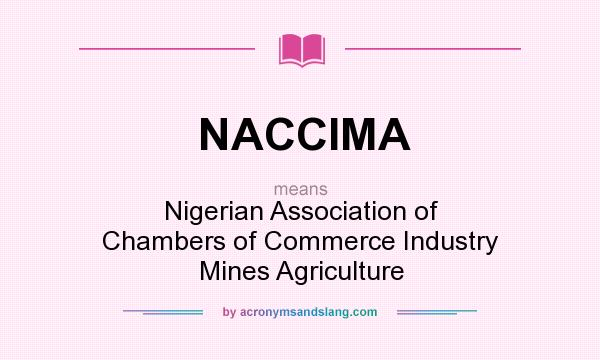The Nigerian Association of Chambers of Commerce, Industry, Mines and Agriculture (NACCIMA) has called for collaboration between government and the Organised Private Sector of Nigeria (OPSN) to address barriers to ease of doing business in Nigeria.
Its National President, John Udeagbala, made the call during the association’s second quarter news conference on Thursday in Lagos.
Udeagbala said that Nigeria leaped forward 15 places to 131 out of 190 countries and was adjudged one of the 10 most improved economies in the world on the ease of doing business in 2019.
He said recent statistics from the National Bureau of Statistics (NBS) however showed a degeneration on ease of doing business which had put a strain on the production industry resulting in decline in growth rate.
According to him, Nigeria’s growth rate declined from 5.01 per cent in Q2 in 2021 to 4.03 per cent in Q3 of same year.
“It went down to 3.98 per cent in Q4 of 2021 and in Q1 of 2022 dropped further to 3.11 per cent with the spiral decline continuing unabated,” he said.
Udeagbala identified some of the challenges impeding ease of doing business in Nigeria to include multiple taxation, multiple exchange rates, government policy somersaults, poor infrastructure and high cost of power.
“NACCIMA, as the voice of OPSN, calls on the government to consider these impending factors affecting the Ease of Doing Business (EoDB) in Nigeria and implement the various suggestions we have made in time past for lasting solutions to these myriads of challenges.
“Collaboration with the OPSN and implementation of suggested solutions to these challenges will help ginger the economy back to inclusive growth and development.
“It would enable the use of available energy sources, such as gas and renewable energy to provide power for the informal sector, build a production economy and create employment for the masse,” he said.
The NACCIMA president also called on the various state governments to take advantage of the new constitutional amendment on power generation.
He said it would help the state governments to create laws for the generation, transmission and distribution of electricity to areas not covered by the national grid system.
Udeagbala said it would equally pave way for the transformation of the power sector in Nigeria being a right step in the right direction.
He urged the Federal Government to urgently fix the country’s four moribund refineries to end importation of petroleum products into the country.
He said that aside the production of basic fuel products such as PMS and diesel, there were other heavier distillates and by-products of the refineries which were critical inputs for industries.
According to him, these will generate further employment opportunities for citizens, particularly the teeming youths.
“It will also address the impact of fuel subsidy removal without adding additional debt burden on the nation.
“Besides, our ability to provide some basic raw materials internally will help our industries to compete better to benefit from the African Continental Free Trade Area (AfCFTA),” he said.













